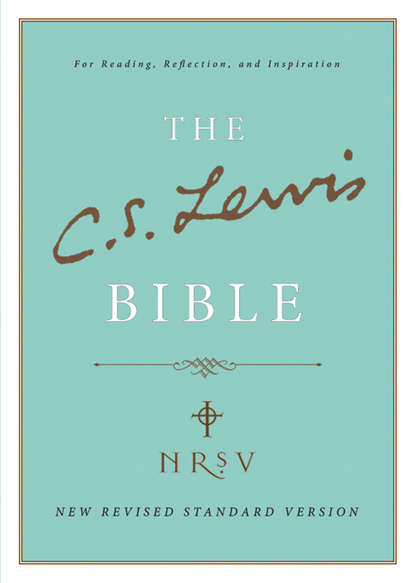[67 (#ulink_00370836-fc4e-509f-a444-69a678a01275)] Cn Compare verse 7: Heb with anyone
[68 (#ulink_00370836-fc4e-509f-a444-69a678a01275)] Another reading is son of Manasseh
[69 (#ulink_672dd999-465b-504e-9a69-8c0754c5eb43)] Gk OL: Heb prostituted herself against
[70 (#ulink_672dd999-465b-504e-9a69-8c0754c5eb43)] Gk: Heb she brought him to
[71 (#ulink_672dd999-465b-504e-9a69-8c0754c5eb43)] Compare verse 7 and Gk: Heb they
[72 (#ulink_672dd999-465b-504e-9a69-8c0754c5eb43)] Cn: Heb Linger
[73 (#ulink_672dd999-465b-504e-9a69-8c0754c5eb43)] Gk: Heb lacks and drank
[74 (#ulink_54e01144-6117-58e6-8489-b64db4d7495d)] Gk Compare 19.29. Heb to the house of the LORD
[75 (#ulink_21e79579-ef2b-58a0-b0fe-e50850ac731b)] Compare Gk: Heb
And all who saw it said, “Such a thing has not happened or been seen
[76 (#ulink_dfee1886-de94-517c-b28f-31029f2483fb)] Gk: Heb lacks we will go up
[77 (#ulink_dfee1886-de94-517c-b28f-31029f2483fb)] Compare Gk: Meaning of Heb uncertain
[78 (#ulink_30ca5c27-4295-5386-8e57-32a13e7915eb)] Verses 22 and 23 are transposed
[79 (#ulink_fd2be828-6c87-573e-8408-5b0a802dc10d)] Gk Vg: Heb in the plain
[80 (#ulink_43778458-f8e3-5c3d-9f17-1aef2dae148a)] This sentence is continued by verse 45.
[81 (#ulink_b851115f-bae4-58e6-84e0-f3ceeec85257)] Compare Vg and some Gk Mss: Heb cities
[82 (#ulink_b851115f-bae4-58e6-84e0-f3ceeec85257)] Compare Syr: Meaning of Heb uncertain
[83 (#ulink_b851115f-bae4-58e6-84e0-f3ceeec85257)] Gk: Heb Surrounding
[84 (#ulink_b851115f-bae4-58e6-84e0-f3ceeec85257)] Gk: Heb pursued them at their resting place
RUTH (#ulink_9889b68f-9fe0-587a-9041-598ce9808f6e)
Chapter 1 (#ulink_11144580-1e31-557e-8f52-4735afcbd2e3)
Chapter 2 (#ulink_12efcc0b-7623-5c16-a543-dafd90e2eb4d)
Chapter 3 (#ulink_26228db3-463e-51d3-aed1-1746e7919fe5)
Chapter 4 (#ulink_3a904f39-a22a-5dc3-b887-226f93933624)
1 In the days when the judges ruled, there was a famine in the land, and a certain man of Bethlehem in Judah went to live in the country of Moab, he and his wife and two sons.
The name of the man was Elimelech and the name of his wife Naomi, and the names of his two sons were Mahlon and Chilion; they were Ephrathites from Bethlehem in Judah. They went into the country of Moab and remained there.
But Elimelech, the husband of Naomi, died, and she was left with her two sons.
These took Moabite wives; the name of the one was Orpah and the name of the other Ruth. When they had lived there about ten years,
both Mahlon and Chilion also died, so that the woman was left without her two sons and her husband.
IT’S STILL THE WORD OF GOD
To me the curious thing is that neither in my own Bible-reading nor in my religious life as a whole does the question in fact even assume that importance which it always gets in theological controversy. The difference between reading the story of Ruth and that of Antigone—both first class as literature—is to me unmistakable and even overwhelming. But the question “Is Ruth historical?” (I’ve no reason to suppose it is not) doesn’t really seem to arise till afterwards. It wd. still act on me as the Word of God if it weren’t, so far as I can see. All Holy Scripture is written for our learning. But learning of what? I should have thought the value of some things (e.g., the Resurrection) depended on whether they really happened: but the value of others (e.g., the fate of Lot’s wife) hardly at all. And the ones whose historicity matters are, as God’s will, those where it is plain.
—from a letter to Professor Clyde S. Kilby, May 7, 1959
For reflection
Ruth 1:1–4
WHEN SORROW COMES
LEWIS, GRIEVING THE DEATH OF HIS WIFE, JOY:
Ihad been warned—I had warned myself—not to reckon on worldly happiness. We were even promised sufferings. They were part of the programme. We were even told, “Blessed are they that mourn,” and I accepted it. I’ve got nothing that I hadn’t bargained for. Of course it is different when the thing happens to oneself, not to others, and in reality, not in imagination. Yes; but should it, for a sane man, make quite such a difference as this. No. And it wouldn’t for a man whose faith had been real faith and whose concern for other people’s sorrows had been real concern. The case is too plain. If my house has collapsed at one blow, that is because it was a house of cards. The faith which “took these things into account” was not faith but imagination. The taking them into account was not real sympathy. If I had really cared, as I thought I did, about the sorrows of the world, I should not have been so overwhelmed when my own sorrow came.
—from A Grief Observed
For reflection
Ruth 1:1–4, 20
6 Then she started to return with her daughters-in-law from the country of Moab, for she had heard in the country of Moab that the LORD had considered his people and given them food.
So she set out from the place where she had been living, she and her two daughters-in-law, and they went on their way to go back to the land of Judah.
But Naomi said to her two daughters-in-law, “Go back each of you to your mother’s house. May the LORD deal kindly with you, as you have dealt with the dead and with me.
The LORD grant that you may find security, each of you in the house of your husband.” Then she kissed them, and they wept aloud.
They said to her, “No, we will return with you to your people.”
But Naomi said, “Turn back, my daughters, why will you go with me? Do I still have sons in my womb that they may become your husbands?
Turn back, my daughters, go your way, for I am too old to have a husband. Even if I thought there was hope for me, even if I should have a husband tonight and bear sons,
would you then wait until they were grown? Would you then refrain from marrying? No, my daughters, it has been far more bitter for me than for you, because the hand of the LORD has turned against me.”
Then they wept aloud again. Orpah kissed her mother-in-law, but Ruth clung to her.
15 So she said, “See, your sister-in-law has gone back to her people and to her gods; return after your sister-in-law.”








 Рейтинг:
0
Рейтинг:
0